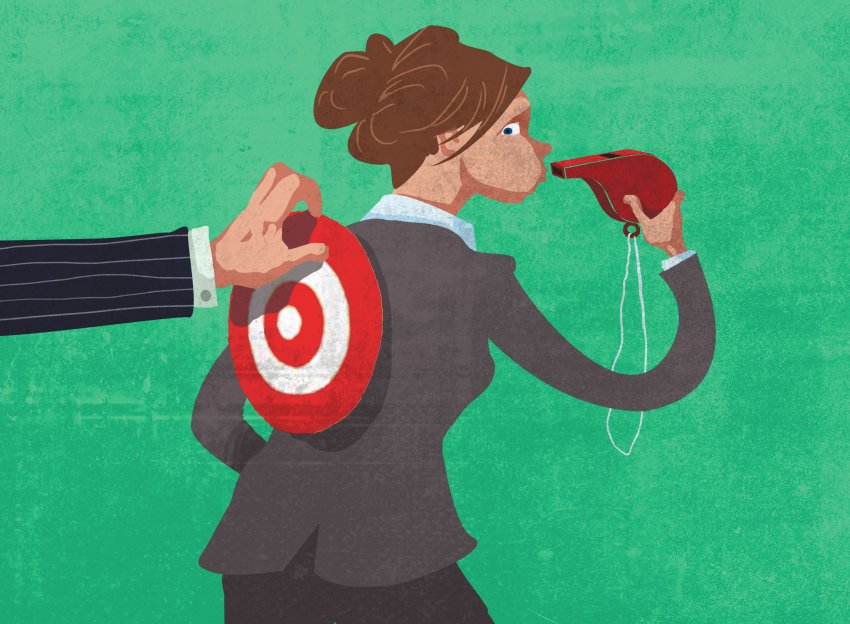
One of the usual threats trotted out by governments proposing what would otherwise be considered radical attacks on civil liberties is national security.
The Australian newspaper reported on June 8 that Attorney-General Christian Porter was demanding urgent passage of two separate espionage and foreign interference bills following “intelligence advice of an accelerated escalation in hostile foreign activity over the past 12 months”.
The Parliamentary Joint Committee on Intelligence and Security had just published a 400-page report containing 60 recommendations, giving the green light to the first bill, the Espionage and Foreign Interference Bill, which The Australian said “would usher in unprecedented secrecy laws and significant new powers for security agencies to prosecute spies and agents of foreign powers”.
Porter said the second bill, the Foreign Influence and Transparency Scheme (FITS) Bill, would “expose malevolent foreign entities and agencies operating in Australia.”
The Australian reported Porter as saying the bills were necessary to address covert foreign disruption as well as attempts by foreign agents to influence the outcome of elections or interfere with Australia’s democratic process.
The committee report received bipartisan support, including from Labor deputy chairman Anthony Byrne.
While these bills are being touted as important tools to protect Australia against foreign interference, their implications are far broader. They amount to an extraordinary multi-faceted attack on civil society’s right to participate in public political discourse.
Their combined effect is a huge expansion of national secrecy laws capturing not only public officials but also any person who makes an unauthorised disclosure of information covered by these laws.
Journalists have rightly protested that the secrecy laws effectively criminalise every phase of their work.
Charities and independent advocacy bodies like GetUp! believe they have been specifically and deliberately targeted to undermine their participation in public political discourse.
Whether or not the laws are deliberately targeting them, the impact is real.
Many of the offences carry very serious penalties — in the case of general secrecy offences more than doubling current penalties.
The reaction from civil liberties organisations and the media has been ferocious.
Human Rights Watch Australian director Elaine Pearson said of these proposed new laws on June 14: “Authoritarian governments around the world use broadly drafted national security laws to silence human rights defenders, journalists, bloggers, and critics of the government.
“Australia should not join them by passing a revised espionage and foreign interference law that excludes safeguards for legitimate disclosures in the public interest…
“It's not just journalists who may fall afoul of these laws. As drafted, so might whistleblowers like Edward Snowden, individuals and non-governmental organisations who expose human rights violations,” Pearson wrote.
She went on to say that the laws' definition of national security is very expansive, including “the country's political, military or economic relations with another country or other countries…
“The committee did not recommend tightening this definition. But the lack of specificity about what constitutes national security means that those who make public politically sensitive information could be guilty of espionage.”
Pearson made the point that human rights activists would be at particular risk, for instance, if they published or shared sensitive information with international bodies such as the United Nations.
The NSW Council of Civil Liberties is an official United Nations observer, so does that mean that I, as a member of its committee, will be committing a criminal offence, punishable with severe penalties, if we provide information to the UN to raise human rights concerns about activities carried on by Australia?
Pearson goes on: “No-one should be prosecuted for exposing human rights violations, such as leaked information about government airstrikes that killed civilians, for example.
“At the very least, there has to be a genuine opportunity to offer a public-interest defence.
“While the Attorney-General has discretion to prosecute, that's not enough. Even if Australians think national institutions are robust enough to protect against misuse, it's putting too much faith in an executive branch that may have reasons to pursue politically motivated prosecutions.”
A big problem is that Australia has no Bill of Rights or Charter of Rights, so even if we consider that the courts are robust and are there to uphold the rule of law, in the absence of an express human rights framework, their ability to protect our liberties and rights is severely hampered.
What is also disturbing is that Australia is a world leader in this proposed legislation. Other nations around the world will be looking at what we do in terms of our foreign interference laws.
Pearson points out that we already see the manipulation of laws to arbitrarily detain and wrongfully prosecute activists, journalists and government critics in countries where institutions are less robust and independent.
It is therefore not right that these same people, having escaped repressive regimes, should come to Australia and yet continue to fear repercussions for themselves or their families still overseas as a result of their activities here.
Pearson says: “Freedom of expression is something most Australians take for granted. But it’s important to make sure that curtailing improper foreign interference doesn't criminalise the actions of whistleblowers, human rights activists, and bloggers.
“Passing this law[s] without a strong public-interest defence could have a serious chilling effect on disclosing information in the public interest. Australia shouldn't aspire to insulate itself from China's political interests by becoming more like China itself.”
[Pauline Wright is a civil libertarian, NSW Council of Civil Liberties vice president and a Law Council of Australia executive member. This is an extract from a talk she gave at Politics in the Pub in Sydney on September 20.]